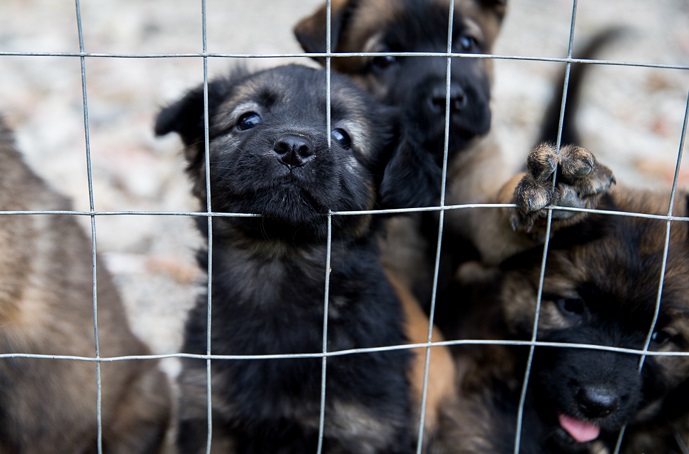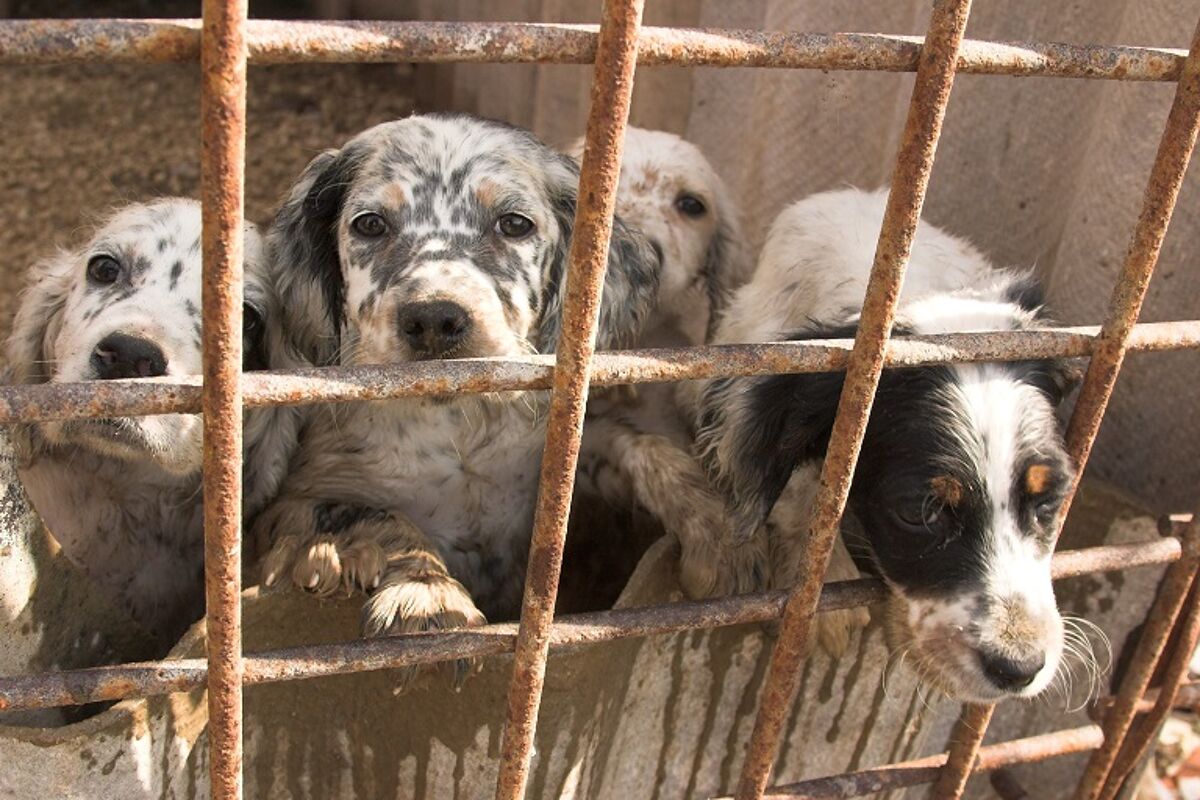Puppy smuggling & dog theft
Alarming data shows that an estimated 2,160 dogs were reported stolen in 2022, according to new research by Direct Line Pet Insurance – around six each day. And only one in four stolen dogs was found and returned.
Puppy smuggling, illegal breeding and organised dog theft are serious crimes.
Help to stop organised crime and cruelty to animals by telling us what you know, 100% anonymously.
Criminal gangs have profited from the pandemic and people's desire for a canine companion - and, sadly, they're also profiting from a surplus of dogs in neighbourhoods since the lockdowns as people have found looking after a dog more of a burden than they had anticipated and abandoned their new pets.
If you are thinking of buying a puppy, did you know that if you buy through an unauthorised source, you could be funding organised crime?
Criminals don’t care about the welfare of animals. So, they don’t often vaccinate puppies, which means they are aiding the spread of disease. Your new puppy may get ill or die prematurely.
Help stop the cycle. We need to stop the demand. Please be patient and purchase through authorised breeders. Together we can get puppies to safety and not fund criminal activity.
If you have information about those behind organised dog theft, puppy smuggling or illegal breeding and wish to remain anonymous, you can contact us on the phone or online:
Remember - always call the police if your dog is missing or stolen.

- The price isn’t right. Being offered an expensive breed for a too-good-to-be-true price is a big warning sign, and the poor welfare of the dogs is the cost.
- The puppy is too young. Puppies shouldn’t be taken from their mum until they’re at least 8 weeks old, or 15 weeks if imported. A good breeder would never sell puppies younger than this. Be concerned if there is no image of the pup’s mum on the advert, or only an image of her on her own without her pups.
- Lots of breeds for sale. Criminals often have many breeds available at the same time, and won’t be able to answer your questions about them. A reputable breeder usually specialises in one breed and knows all about them.
- Strange meeting places. Criminals will often suggest meeting somewhere public, like a car park, to show you the puppies. This is a big warning sign as they don’t want you to see the conditions the puppies are kept in.
Walk away.
If you suspect puppy farming - walk away. Buying a dog will not help the dog. Your purchase will result in more profits for the criminals behind puppy farms, which may then encourage further breeding, feeding a cycle of organised crime.
Report, report, report:
- If you saw the dogs advertised online, report the advert to the host website.
- If you suspect that the breeders are breaching the terms of their licence, or that they should have a licence but don’t, report them to local authorities.
- If you are concerned for the wellbeing and welfare of the dogs, report the breeders to the RSCPA.
- If you witness any cruelty to the dogs, report this to the police.
- If you have information about those behind illegal breeding and wish to remain anonymous, tell us what you know.
- Report your dog as stolen to the police with as full a description as possible, and ensure you keep a record of the crime reference number.
- Get in touch with your local council, as they may have a dog warden service that can help to identify missing or stray dogs.
- Inform the microchip database that stores your dog’s information that your dog has been stolen. Ensure that they have your most up-to-date contact details so they can get in touch if your dog is located.
- Publicise that your dog has been stolen in animal rescue centres and vets, as well as on missing pet websites, to help spread the word. Be sure to include clear photos, a detailed description and the crime reference number.
Whilst it is legal to import puppies to sell in the UK, this is only the case if they are correctly imported under importation legislation.
Unfortunately, many of the puppies found for sale online have been imported through the Pet Travel Scheme - which is designed for personal family pets only.
Importing puppies for sale under this legislation is illegal, and importers are also evading HMRC by choosing this route. In many cases, puppies being advertised for sale are too young to have been imported legally under the Pet Travel Scheme or importation legislation. This has worrying implications for puppies’ welfare and for the control of disease.
To travel to Great Britain from countries within the EU, a puppy must be a minimum of 15 weeks old. The puppy should receive a rabies vaccine at a minimum of 12 weeks old, followed by a 21 day wait period after the vaccination.
For a puppy from an unlisted Third Country to comply with EU pet travel rules, they must be at least 7 months old on arrival. This allows for the additional requirement of a rabies blood test to be carried out 3 months before the date of travel to an EU country or the UK.
Occasionally, the presence of a passport and a health certificate from a vet in the country of origin has been used by sellers to give the impression of legitimacy. Closer examination of the paperwork is essential, as sometimes dates of birth do not match the story being told.
If you have information about those behind puppy smuggling and wish to remain anonymous, tell us what you know.
